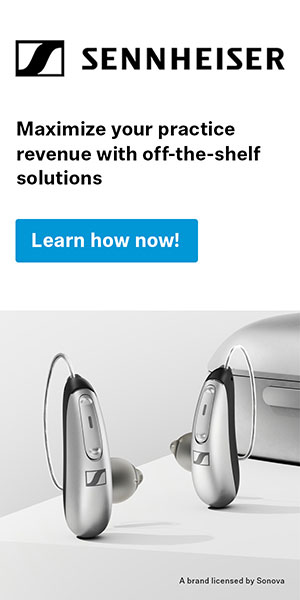Interview with Tabitha Parent Au.D., Chair of Audiology, Arizona School of Health Sciences Distance Education Au.D. Program
Interview with Tabitha Parent, Au.D.
Chair of Audiology
Arizona School of Health Sciences.
April 12, 2000
AO/Beck: Dr. Parent, please tell us about yourself? When and where did you get your audiology degrees?
ASHS/Parent : I graduated with my M.S. from Purdue University and I earned my doctorate (Au.D.) from Baylor College of Medicine in May 1996.
AO/Beck: Before we address the current situation regarding earned doctoral degrees from regionally accredited universities, I was wondering if I could get your thoughts on the earned entitlement movement of 1994 through about 1997?
ASHS/Parent: I think it was a reasonable method of transition for the profession at the time. EE was based on models and precedents that had worked for other professions. Unfortunately, because of the political climate within the professions of audiology and speech language pathology, it did not prove to be feasible, and I am glad that we have other options for practitioners now through regionally accredited universities.
AO/Beck: What are the ASHS highlights?
ASHS/Parent: The Arizona School of Health Sciences is a school of health care professionals. We educate and graduate doctors of osteopathic medicine, we have degree programs in physician assistant studies, physical therapy, occupational therapy, sports health care, medical informatics, and now we have audiology too. Bringing audiology into ASHS fits our previously established goals and mission. We have a brand new audiology program which does not require retrofitting a previously established faculty and protocol. We can focus on the present and future while we set our sites on the needs of a clinical doctoral program.
AO/Beck: Dr. Parent, if we were to assume that the average audiologist out there has some 8 to 10 years of clinical experience, how long would they need to attend your program, how many courses would be required and what would it cost?
ASHS/Parent: The average person will need about one year to earn the additional credits required. Some will need more time and credits, some will need less, but the average is anticipated to be about one year in duration. The tuition is currently $3000.00 and that would cover the student for up to two years (as needed). However, the tuition will go up in the fall to about $3500.00.
AO/Beck: Are you planning on having an on-campus residential program ?
ASHS/Parent: Yes, the distance Ed program is a time-limited offering. The distance Ed program will run through the 2004-2005 academic year. We are planning to offer the residential program by September of 2001. We are constructing a new building for the audiology program - the ground breaking was in March 2000. The new building will have labs and classrooms in the same building, and the building is on a 50-acre lot.
We hope to have about 40 residential students per class.
AO/Beck: How can a Distance-Ed program confirm clinical competency?
ASHS/Parent: Basically, the students enrolling in our program (and others) already have their CCC-A, their AAA Board Certification and/or their state license to practice audiology. Their license and/or certifications already addressed their clinical competence. Our role is to continue their education to the doctoral level through theoretical, clinical and academic studies in audiology. Our Distance-Ed students have already proven their clinical competence through traditional audiology venues.
AO/Beck: What do you think the future holds for the established master's programs?
ASHS/Parent: I think that if the current trends continue, by 2010 we'll be graduating
only doctoral level audiologists. I think we have far too many masters programs graduating too few audiologists per program. Ideally, I'd like to see fewer total programs graduating more audiologists.
AO/Beck: How many clinical doctoral programs do we need in the USA?
ASHS/Parent: We'll probably need about 15 to 20 programs, each graduating 40 or more students per year. That would seem to be a reasonable target as best I can predict.
AO/Beck: Do you think the audiologist with a master's degree will essentially be a second class citizen in the year 2010?
ASHS/Parent: Yes, I think that's a real possibility and it is something that we all need to be concerned about. Of course the licensed audiologist will legally be allowed to practice as long as they maintain their licenses through fees and CEUs etc. However, there is a concern that the job market in 8 to 10 years will be extremely difficult for the audiologist possessing a masters' degree as their highest educational credential. The audiologist with a masters will likely have an increasingly difficult time competing with the doctoral level audiologist.
AO/Beck: How many Distance-Ed students do you anticipate will enroll in your program over the next few months?
ASHS/Parent: We're anticipating some 200 students will join us for the Distance-Ed portion. It may grow a little larger. We'll have to wait and see.
AO/Beck: When do you anticipate publishing the faculty list?
ASHS/Parent: We hope to publish the list in a week or two. Overall I believe the faculty is composed of some of the most talented and able clinical and academic experts in our profession. I'm very proud of the faculty we've assembled and I think the students will be extremely impressed with the depth and breadth of their knowledge as well as the overall quality of the program.
AO/Beck: Dr. Parent, thank you for your time. How can prospective students and others find our more regarding your program?
ASHS/Parent: Please feel free to contact my office. The phone number is 602-589-1048, and the fax number is 602-841-4092. Of course they can also email me at ptab@ashs.edu.

